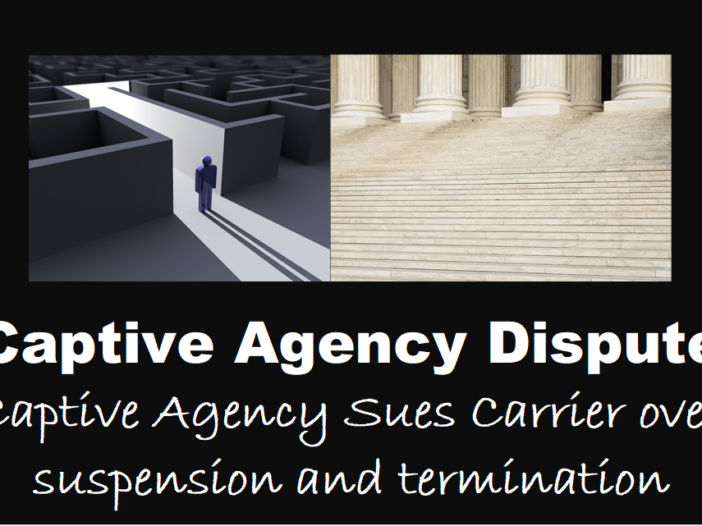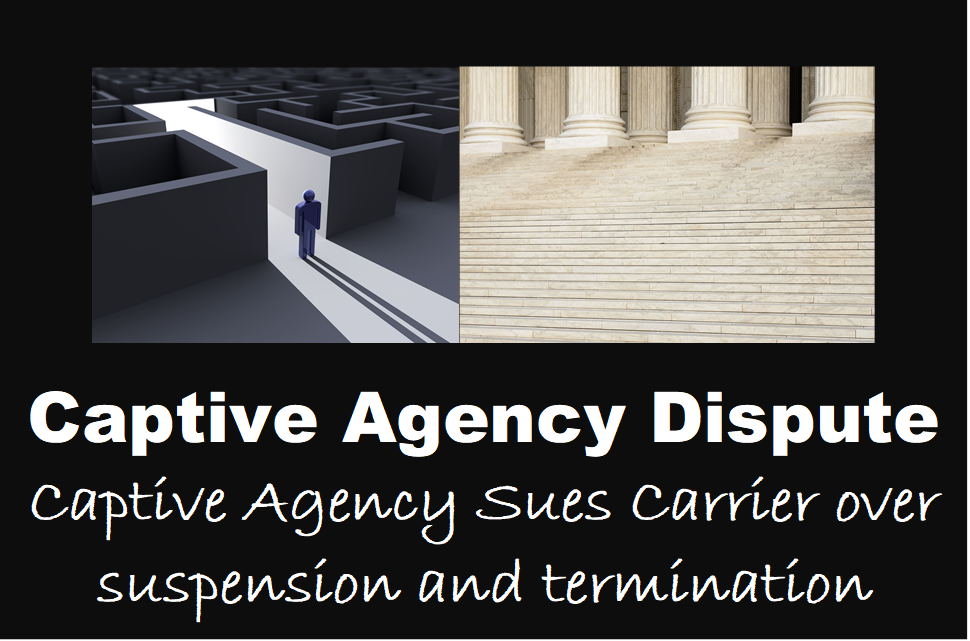
By: AgencyEquity.com
Can a captive insurance agency get so successful that its carrier decides to get rid of it? One Massachusetts agency thought so, and they sued the carrier.
In the spring of 2020, an insurance agent formed an agency for the sole purpose of selling this particular carrier’s policies. The agency signed a contract with the carrier in May and began operations that fall. A superseding contract was signed in December. The contract required the agency to represent only that carrier, gave the carrier ownership of prospect lists, communications equipment including computers, and all of the marketing materials.

Within two years, the agency had grown to be the carrier’s top producer in the state and the seventh biggest in the country. However, for reasons not given in the court opinion, the relationship between the two soured. At the end of 2022, the carrier told the agency it had opened an investigation into the agency’s operations. The carrier also suspended the agency, locking it out of access to its computer systems, cut off access to new and existing customers, and had customer phone calls that were intended for the agency re-routed.
Two weeks later, the carrier informed the agency that it was terminating their contract effective on February 12, 2023. A few days after receiving the notice, the agency learned that it could still sell the carrier’s policies until the effective date of termination. However, the carrier did not restore the agency’s access to customers or systems. They allegedly told customers the agency had gone out of business, which was not true, sent customers to other offices, and failed to pay renewal commissions the agency had earned..
The agency claimed that these actions were part of a pattern. They believed that the carrier had closed other successful agencies to avoid paying large future commissions. The agency sued, first asking the court to grant an injunction to stop the carrier’s actions. The court denied that request, so the agency filed a second suit alleging breach of contract, seeking unpaid commissions, and charging the carrier with acting in bad faith, and misclassifying them as an independent contractor, among other things.
The carrier asked the court to dismiss all complaints. The court dismissed some but not all. The carrier had asked for dismissal of the misclassification claim because it was already facing a class action lawsuit in Ohio courts over the same complaint, and that suit was filed before this agency’s suit was. The court refused to do that, saying that there was enough difference between the Massachusetts law in this case and the federal law at issue in the class action to make them different disputes.
While the court found that the carrier complied with the contract’s termination notice requirement, it may have violated the contract by suspending the agency without reaching a conclusion that the agency had violated the conditions for using carrier systems (e.g., letting unauthorized persons log in.)
The judge also found the contract to be ambiguous on the subject of payment of renewal commissions and thus refused to dismiss that claim. However, she dismissed other claims of unjust enrichment, acting in bad faith, misrepresentation, and she refused to throw out the post-termination non-compete restrictions in the contract.
The court issued its decision in late July 2023; there is no further public record to date. The attorneys for both sides may be trying to negotiate a settlement.
It is probably impossible to know whether the carrier cracked down on this agency because it feared having to pay large commissions. However, it does appear that they seized a flimsy rationale (possible misuse of carrier systems) as a pretext for shutting the agency down. It was the equivalent of getting the death penalty for a misstatement on a tax return. The agency may have broken rules, but the punishment seems excessive.
Anyone considering doing business with any carrier should investigate the carrier’s past behavior in the marketplace, particularly its treatment of agents. The results may provide information valuable for making a wise business decision.












